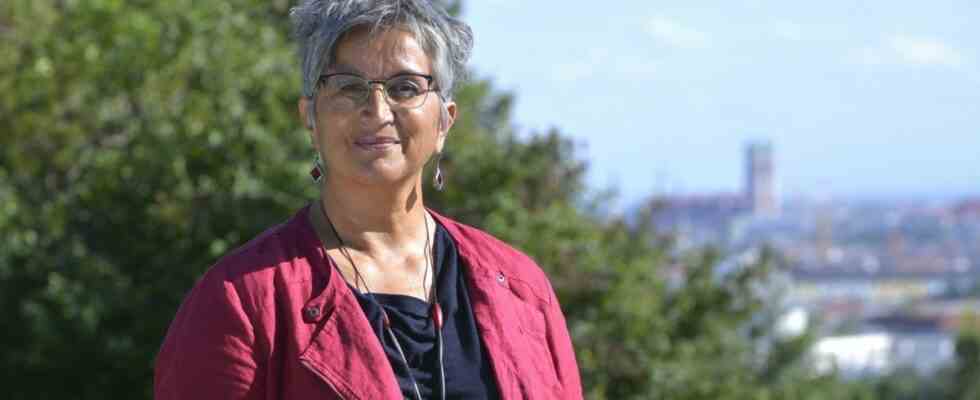Michaela Huber sums up one goal as follows: “We want to know what those affected want.” Huber means people who have suffered abuse in the Catholic Church, she herself is the spokeswoman for the Munich archdiocese’s review commission. She means the “day of encounter” for those affected on September 23, the first public event of the commission. It should be a tightrope walk. It takes courage to make yourself known to a larger circle as an affected person. At the same time, there is a risk that expectations will be disappointed.
All too often, those affected have experienced contact with the church as disappointing, sometimes hurtful and again traumatizing. The Commission, says Huber, hopes as a result of the event that the contact between those affected and the diocese will intensify and that those affected will network with each other. You want to support them in making a decision: “The decision to no longer be a victim, but to act actively yourself.”
Almost a year and a half ago, the Commission was set up alongside the Advisory Board for Affected Persons. It includes experts from different professions, for example a child and adolescent psychiatrist and a lawyer; Huber herself is a psychologist and supervisor. In other dioceses, these bodies are still busy launching investigations, says Huber. This task is done in Munich, in January the law firm Wastl Spilker Westpfahl published its abuse report.
Since then, even more has been known about internal power and cover-up structures in the Archdiocese of Munich and Freising, and that many of the suspects have remained unmolested. There are still a few white spots in the archdiocese, says Huber, such as the past of the archdiocese’s study seminar in Traunstein. The Commission will probably take care of that.
Archbishop Reinhard Marx has also promised to come
Where are the people today who suffered the abuse? There are hundreds of them, only a small part of which is known by name to the diocese. Huber hopes to motivate some of the “dark field” to go into the exchange to stand up for their interests. No representatives of the press are permitted on the day of the encounter, please ensure that the setting is protected, and those affected must register by name. “It has to be a good day for those affected, not for the public,” says Huber. In the event that those affected are not doing well, precautions have been taken: experts are available for supportive discussions. Archbishop Reinhard Marx has also promised to come. It should be possible to have short conversations in small groups with him, and you can also reserve a separate appointment with him.
At a time when the Catholic Church is reeling from one abuse report to the next, the spokeswoman for the Munich commission praises the archdiocese: she is satisfied with what the ordinariate is doing for those affected. In the meantime, a good network of help has been established: there is a contact and advice center in a staff office, pastoral care is also offered, and there are three contact persons who can act independently of the church.
Those affected could also turn to external bodies, there are cooperation agreements between the church and, for example, Wildwasser and a university trauma clinic. Huber is annoyed that in the past those responsible for the archdiocese have “sometimes been somewhat amateurish” in their efforts to help those affected. In the meantime, however, a lot has improved: “You walk in open doors.”
On the other hand, she is dissatisfied with an institution at the level of the German Bishops’ Conference, the “Independent Commission for Recognition Services”. This decides on the amount of compensation payments. Who gets how much money? How are actions weighted, how are their consequences? The decision criteria are completely non-transparent, criticizes Huber, “that doesn’t work at all”. And the sums paid out so far are remarkably small and are usually well below the maximum amount of 50,000 euros.
Michaela Huber would like a place of remembrance and remembrance
The commission sees itself as a kind of supervisory authority of the diocese: based on the recommendations in the abuse report, they want to focus on certain problems. How the subject of sexuality is integrated into priestly training, how the church deals with perpetrators who are still alive, or how the processing in parishes is carried out where abuse has taken place.
Beyond control, Michaela Huber has a new kind of project in mind: a place of remembrance and remembrance. She thinks of a specially designed structure that informs about structures that made these crimes and later cover-ups possible. It should be a place, says Huber, where visitors can see, hear and read what those affected say, think and feel. At the same time, those affected should be able to leave part of their burden behind.
This idea is currently still being discussed at the level of the Bavarian dioceses, Huber hopes for the support of Archbishop Marx. The church, says Michaela Huber, will always have to deal with what church people have done to people and how the institution protected the perpetrators. This chapter is just as much part of the dark history of the Catholic Church as the burning of witches and the Crusades. “It will never be over.”
Further information on the “Day of Encounter” on Friday, September 23, 2 p.m. to 5 p.m. is available on the Internet at www.erzbistum-muenchen.de. Registration until September 9th. The archdiocese counseling center for victims of sexual abuse can be reached at 089/2137-77 000.

